Wolfgang Winkler
출생 : 1943-03-02, Görlitz, Germany
사망 : 2019-12-07

Bruno Hass

Bäckermeister
A border region village between the Czech Republic and Germany tells the love story of TOMMY (19) from socially disadvantaged backgrounds and JULIA (18) coming from a wealthy family. Julia is getting unexpectedly pregnant. Against their parents opinion Julia and Tommy want to build a future with the child. Money is a big issue for Tommy who works as a baker's student. Tommy is offered a risky deal - drug smuggling. The young relationship is put to the test.

Ludwig
The writer Sofie lives with her daughter, her son and her motherly friend Rosa in a pretty Leipzig city villa. Her life seems to have a firm grip on the single mother - if it were not for this writer's block that prevents her from completing her new romance novel. To make matters worse, her childhood sweetheart Vincent emerges completely unexpectedly. Vincent, Rosa's son, left her 15 years ago overnight. She has never heard from him since. Therefore, she tries to keep secret from him that she connects far more than a broken love ...
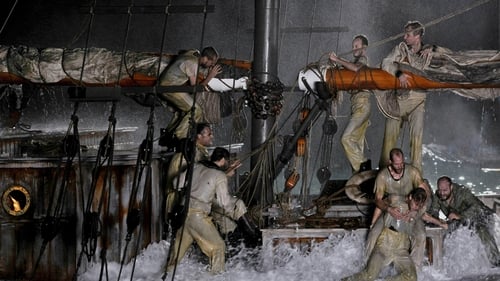
Dr.Bartel
When their ship is sunk in the Indian Ocean during the first world war, 50 men have to cross infinite stretches of sea and desert, avoid enemies, find allies and finally make it home to Germany. A breathtaking real-life odyssey.

Manfred Talbach
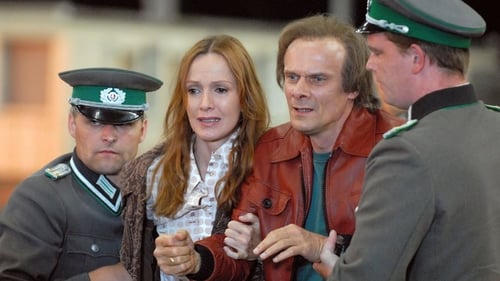
Hermann
During the Cold War, Ulrich and Heike Molitor's attempt to escape from the GDR with their children hidden in the car ends in a prison conviction and both kids going to adoption unless they accept to leave daughter Rebecca behind to that fate and choose 'exulsion' with son Klaus. When the kids near adulthood, Klaus is frustrated that his parents only wine about his lost sister. Meanwhile, the time is ripening for the Berlin wall to come down. Rebecca's adoptive pa resists his wife's bitching to leave the Stasi.

Müller
No one takes the clumsy Max Klopstock seriously. Even the gluttonous goat makes fun of him. Max wants to prove his worth to his father and lovely Lotte. So he packs his knapsack and heads out into the world like his older brothers Emil and Joeckel did.

Günther Schlüter

Richard Bilinsky

Richard Bilinsky

Karl Hagedorn

Block, Leiter KB Ost

Kuno Winter

Chauffeur Bruno
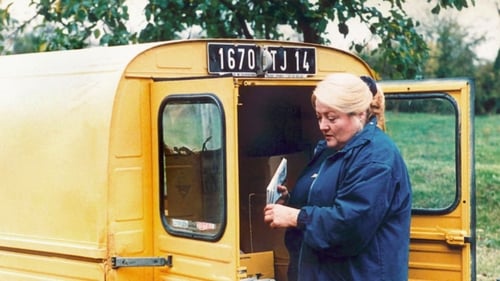
Herr Schwab

Wachtmeister Wubbel
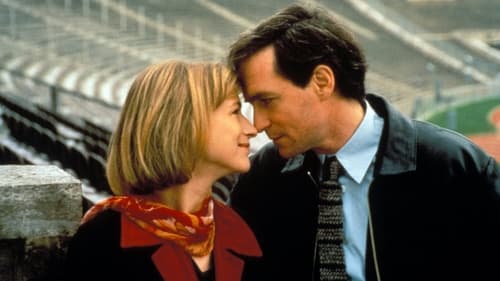
Stasi
베를린 장벽이 세워진 1961년 직후 서독으로 탈출을 결행한 동독의 젊은이들 중 서로 헤어지게 된 두 남녀의 슬픈 사랑.탈출에 실패해 동독에 잔류한 콘라드는 서독으로 넘어간 여자친구 소피와 장벽을 넘는 사랑의 "약속"을 하지만, 이약속은 28년 동안 지속된 동서독의 갈등과 대립으로 인해 지켜지지 못한다. 둘은 결국 베를린 장벽이 붕괴하던 날 감격스런 재회를 하지만 이들간의 약속은 이미 깨진 상태이며 이후의 미래 또한 불확실하다.

Erwin Gorn
A comedy directed by Manfred Stelzer.

To gain lands from the prince of Saxony, a group of orphans seeks Mozart, in order to obtain the very rare score of one of his compositions.

Mann in Bar
East Berlin, 1989: 30-year-old photojournalist Georg follows a beautiful, mysterious dancer Miss Albena. Blinded by love, he dreams about her. His imagination and reality – a world in the midst of radical social change – get mixed up.

Hammer

Zaunmann
A village has to be destroyed for coal mining. Henning, a 15 years old boy, who wants to visit his grandfather one more time, realizes that nothing will be the way it used to be.

Oberförster

Göttermann

Amadeus Bomberczitschewski
Film by Ulrich Thein.

Hugo Tannhäuser

Freund der Mutter

Weber

Matuschke

Bereichsleiter Sager

Schmied
Germany, 1949. Three children are crating a secret society in order to help families in need.

In 1938, a young woman leaves Germany to search for her love, Erich, in Reichenburg, Bohemia. Erich is secretly fighting the fascists, so Hilde ends up becoming a housemaid in the home of a German joiner in order to carry on their relationship. The joiner's son notices the passionate love shared between Hilde and Erich. To him, the young lady embodies the feminine ideal. When Hilde receives news of Erich's death, she descends into an uninhibited lifestyle in an attempt to forget.

Two years ago, cinema poster painter Jonathan had agreed in his divorce to leave the sole custody for his son David to David′s mother Ruth. But at the boy′s ninth birthday, Jonathan all of a sudden returns to their house. In the meantime, Ruth has found a new Partner, Franz, whom David has accepted as his surrogate father. Although everybody tries to solve the new situation with a lot of tolerance, Franz and Jonathan become rivals. But this rivalry comes to an end when David has an accident. Now, the boy is allowed to visit his father Jonathan on the weekend whenever he wants to. But before that, David goes on one last adventure: On a trip to a vacation camp, Jonathan "kidnaps" his son to spend several days hitchhiking alone with his son. Then, he gets him back to the vacation camp.
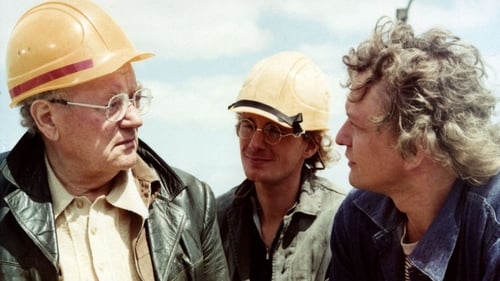
Meister Kosenkamp
Young construction worker Ralf Reider leaves his home village Katzsprung in the Rhön mountains during the "Berlin Initiative". In the capital, he wants to earn enough money in construction to build his own house for his wife and his child. But Ralf is an unconventional character who soon becomes an outsider because of his behaviour.

Mr. Fiedler
On the way to the holiday camp, 16-year-old Steffi falls in love with Norbert, whom she has known for a long time from visiting grandfather in Pinnow. She made a quick decision to change her future plans and decided to become a milker, because Norbert is the newly appointed apprentice trainer for livestock farming in Pinnow. The grandfather, who is very happy about Steffi's visit, cannot prevent his granddaughter from making up her mind.
Norbert himself was an apprentice in Pinnow and often suffered from the teaching methods of his predecessor. That's why he wants to do it differently.
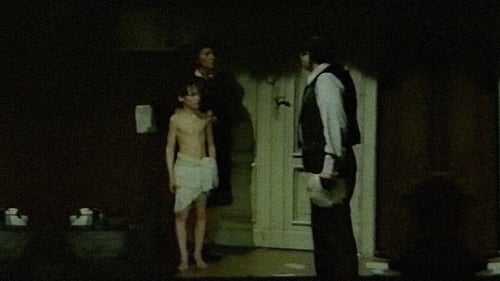
Vater von Klaus
Things are not going well for Klaus Wensloff. It is the last year of World War II. At school the boy hears Nazi propaganda, while at home his mother tells him Bible stories and his father explain the world revolution.
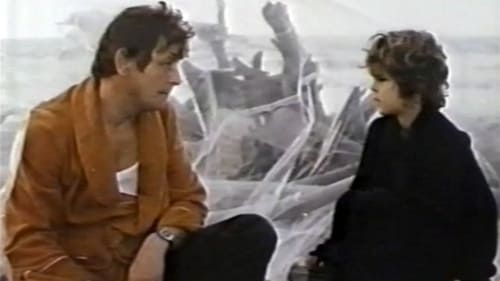
Jens, genannt der Dicke
Nine years old Flori must deal with a lot of problems after his father leaves the family.

35-year old ballet soloist Peter ends his career as a performance dancer and, on the occasion of his last stage performance, looks back on his career and his life. Peter′s retrospection is centred on the relationship with his professional and romantic partner Lotte, who he had once met at a joint performance. Peter remembers the landmarks of their love: their marriage, their child, and Lotte′s severe illness that threatened to end her career. In flashbacks, the film shows how the couple survived this crisis by working sacrificially to return to the stage and celebrate international success.
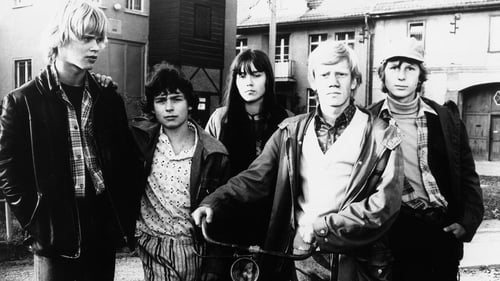
Cornelias Vater
Max Stricker, an old anti-fascist, informs a class of eighth graders before their planned visit to the former concentration camp in Buchenwald. But the boys and girls are not very interested in Max′s lecture and instead stop his lecture with their constant interferences. On the trip to Buchenwald, the class roughnecks around wannabe hoodlum King also want to cause trouble. Thus, a small group of pupils secretly leaves the train before it arrives. Max notices the runaways, follows them, and offers them a bet: He challenges them to get to Weimar on their own, with only five Marks left.

Wilhelm Lemke

Jochen

Jörg
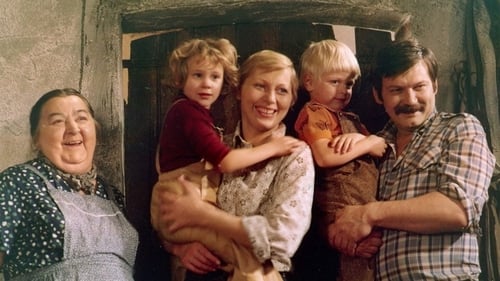
Vater

A film about the time of the blast furnances - 1917 - 1933 - about the development of an industry, about a perfect machinery which had to run itself to the point of its own destruction.

Koch Bob
The little African girl Asina is eagerly waiting for her new friend Karli. Karli is a young sailor from Rostock who has promised her a gift on his next arrival in Coccatuttibana. Karli keeps his promise and smuggles a stowaway onboard the “MS Wismar”. Kasimir, a snowman, finds shelter in a cooling chamber. Although the journey turns out to be turbulent, Karli and Kasimir manage to arrive in Africa in good health.

A funny story about fifth grader Ottokar who is always ready to fight for justice.

Zilias, Fahrer des Kreissekretärs

Herr Groth
The five-part feature, based on the novel by Helmut Sakowski, focuses on the friendly but also rival relationship between Druskat and the self-righteous Max Stephan, an old pal with different attitudes towards life and socialism . Druskat came to Mecklenburg as a refugee after World War II, became an integral part of the community, but also repeatedly caused a stir. Since the death of his wife he lives only with his daughter Anja, although there were enough women who wanted to be with him. Now he´s chairman of the LPG, the "volutary" federation for agriculture and animal husbandry. One evening, two men from the public prosecutor's office come to pick him up. He seems prepared, but Anja doesn't know why. Her first way leads her to Max Stephan, LPG chairman in the neighboring village. She happened to be there during the last argument between them, Max threatened to literally destroy Daniel. Did he carry out this threat? In conversations with the villagers, she gradually learns the truth.

Baumann
For thirty years, Karl Achilles has been working at the chemical collective in Bitterfeld. But now his last day as a master at the plant has come. He is about to retire; even if Karl, who finds ending his working life difficult, wanted to stay on, it would not be possible. Karl’s colleagues have arranged a farewell dinner for the retiring master at an outdoor restaurant. But on his last day of work, before the farewell dinner, he meets all sorts of people: both colleagues and people, who do not work at the plant. A mosaic of the biography of a person who found fulfilment in his work and now has to look for the meaning of his life anew.

Leo Javerni
15-year old Klaus Kambor, called Kurbel, is living in a village in Lusatia and already thinks of himself as an adult. He can hold a lot of rhubarb wine and has already kissed a girl. But with his new method of lawn mowing, which he thinks is brilliant, Klaus makes a big mistake: He causes a wild fire in the forest. Then he does not react adult-like at all, but shirks the responsibility, which leads to the break-up with his girlfriend Daniela. Furthermore, Klaus does not realize that several of the places he likes the most in his environment are now going to be sacrificed to mining. When Klaus becomes friends with the teacher Konzak and with the construction worker Jule, he feels understood for the first time and starts to take more responsibility.

Dritter Ingenieur
Friedrich Wilhelm Georg Platow worked for the railways his entire working life. He took up service at the small station of Luege 34 years ago. Now, the line is to be electrified and Platow, who cannot cope with the new technology, has to work on a secondary local line. Georg, his son, a railway worker as well, is to attend a training course, but Georg refuses to go. Then his father comes to a surprising and highly unusual decision. He pretends to be Georg Platow, making himself twenty years younger than he really is and registers for the course.
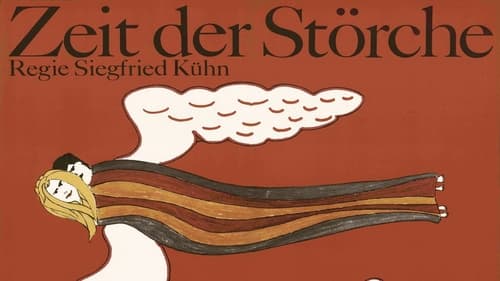
Karl Kramer
Susanne and Christian get to know each other during a wonderful week in summer - and fall in love. This, however, leads to conflicts: up to now, Susanne has been living with Wolfgang, a biologist. This shared life was harmonious and based on mutual trust. Wolfgang is not only resolute and in full command of social situations; he has also always been the stabilizing force in the relationship. This is precisely why Susanne now feels drawn to the unsettled, unsteady and frivolous Christian, the complete opposite of the calm, well-balanced Wolfgang. And Christian, working as a shift boss on a natural gas derrick, has become more aware of his personal and social responsibilities as a result of loving Susanne.

Gregor is a young soldier entering Germany with the victorious Soviet troops at the end of WWII. But he is also the child of left-wing Germans who fled from Hitler and spent the war in the Soviet Union. As a result, his return to Germany is ambivalent; he finds he is a stranger in his own land. As they enter Germany, Gregor begins to realize that he is different from all his comrades in arms, for this defeated land is his home country, the Germans he meets are his compatriots. He is a victor, but also one of the vanquished. He attempts to understand the Germans he meets along his way, but he is a 19-year-old: inquisitive, occasionally uncomprehending and repeatedly dismayed by the atrocities and lies he encounters.
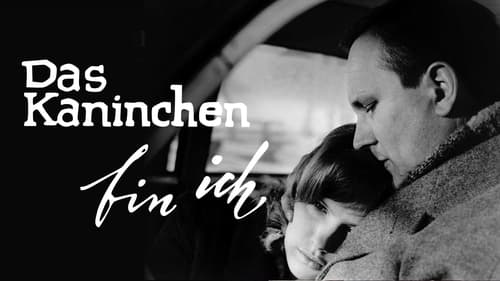
Dieter Morzeck
The Rabbit Is Me was made in 1965 to encourage discussion of the democratization of East German society. In it, a young student has an affair with a judge who once sentenced her brother for political reasons; she eventually confronts him with his opportunism and hypocrisy. It is a sardonic portrayal of the German Democratic Republic's judicial system and its social implications. The film was banned by officials as an anti-socialist, pessimistic and revisionist attack on the state. It henceforth lent its name to all the banned films of 1965, which became known as the "Rabbit Films." After its release in 1990, The Rabbit Is Me earned critical praise as one of the most important and courageous works ever made in East Germany. It was screened at The Museum of Modern Art in 2005 as part of the film series Rebels with a Cause: The Cinema of East Germany.


























